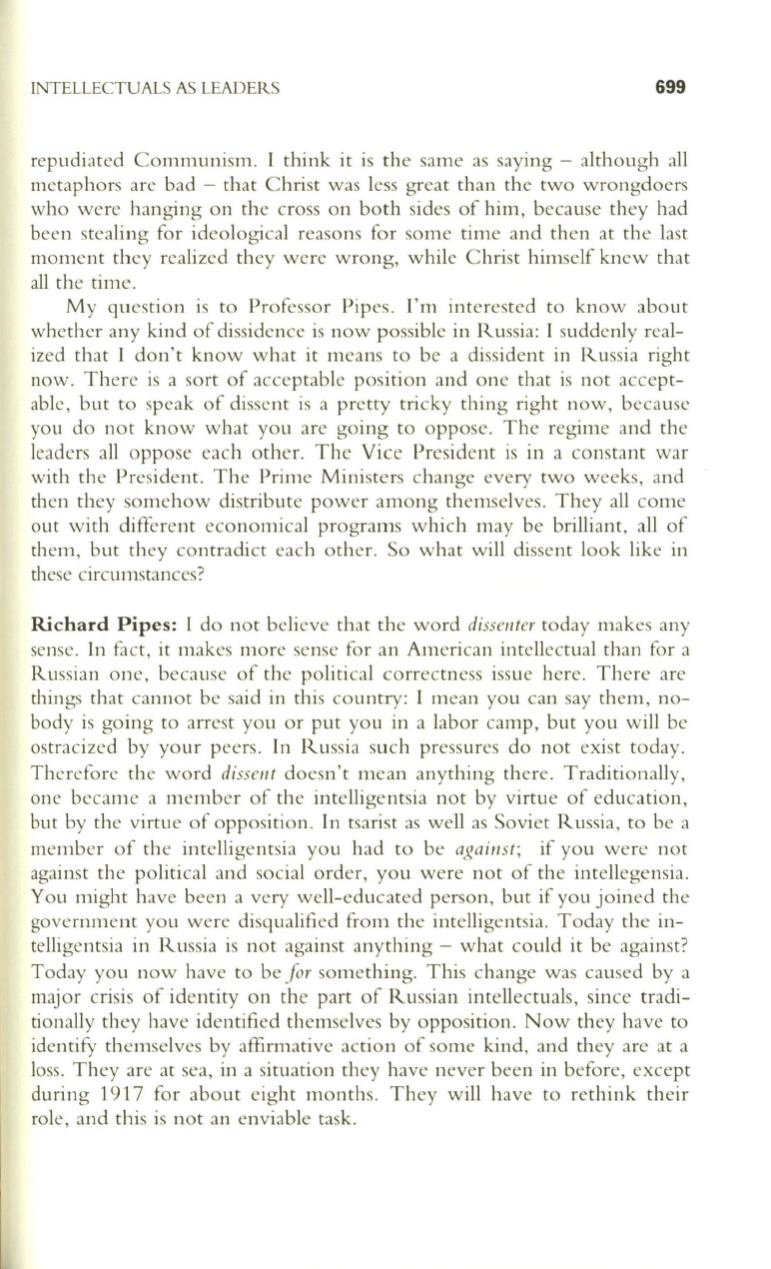
INTELLECTUALS AS LEADERS
699
repudiated Communism. I think it is the same as saying - although all
metaphors are bad - that Christ was less great than the two wrongdoers
who were hanging on the cross on both sides of him, because they had
been stealing for ideological reasons for some time and then at the last
moment they realized they were wrong, while Christ himself knew that
all the time.
My question is to Professor Pipes . I' m interested to know about
whether any kind of dissidence is now possible in Russia: I suddenly real–
ized that I don 't know what it means to be a dissident in Russia right
now. There is a sort of acceptable position and one that is not accept–
able, but to speak of dissent is a pretty tricky thing right now, because
you do not know what you are going to oppose. The regime and the
leaders all oppose each other. The Vice President is in a constant war
with the Presi dent. The Prime Ministers change every two weeks, and
then they somehow distribute power among themselves. They all come
out with different economical programs which may be brilliant, all of
them, but they contradict each other. So what will dissent look like in
these circumstances?
Richard Pipes: I
do not believe that the word
dissen ter
today makes any
sense. In fact, it makes more sense for an American intellectual than for a
Russian one, because of the political correctness issue here. There are
things that cannot be said in this country: I mean you can say them, no–
body is going to arrest you or put you in a labor camp, but you will be
ostracized by your peers. In Russia such pressures do not exist today.
Th erefore the word
dissent
doesn't mean anything there. Traditionally,
one became a member of the intelligentsia not by virtue of education,
but by the virtue of opposition. In tsarist as well as Soviet Russia, to be a
member of the intelligentsia you had to be
against;
if you were not
against the political and social order, you were not of the intellegensia.
You might have been a very well-educated person, but if you joined the
government you were disqualified from the intelligentsia. Today the in–
telligentsia in Russia is not against anything - what could it be against?
Today you now have to be
Jor
something. This change was caused by a
major crisis of identity on the part of Russian intellectuals, since tradi–
tionally they have identified themselves by opposition. Now they have to
identify themselves by affirmative action of some kind, and they are at a
loss. They are at sea, in a situation they have never been in before, except
during 1917 for about eight months. They will have to rethink their
role, and this is not an enviable task.


